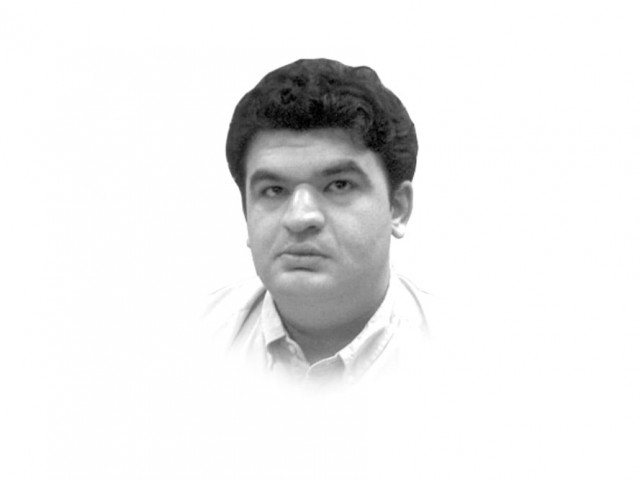The politicisation of religious identity
It is not enough to simply say that political parties should no longer use religious identity to achieve their goals.

Consider every political protest, both major and minor, and a religious component will have been a part of it. The protests against the blasphemous video, a couple of months ago, combined a host of grievances against the government and its Western patrons. Then, there were the widespread protests against the publication of the Danish cartoons back in 2005. Ultimately, the protests encompassed every anti-Pervez Musharraf political party in the country, with the cartoons themselves being the MacGuffin around which a movement against the dictator coalesced. Using religious sentiment as a fig leaf for political goals had by then become the best way to voice demands completely unconnected to the original outrage.
The politicisaton of religious identity can be traced back to the Objectives Resolution and, after that, the anti-Ahmadi riots of the 1950s. Groups like the Jamaat-e-Islami and others, who had opposed the creation of Pakistan, suddenly found themselves with a political niche in the new country. The strategy they devised to carve a role for themselves, involved invoking religious sentiments against the Ahmadis and positioned themselves as the true champions of a certain interpretation of Islam. Rather than restricting themselves to the mosque, these groups chose direct action over sermons because their true goal was political, not religious.
Fast-forward to the late 1970s when General Ziaul Haq has taken power, Afghanistan has been invaded by the USSR and Saudi money is pouring in. For the Saudis, countering the potential rise of Iran is a political priority and General Zia, as a conduit for Saudi Arabia, has to follow suit. This means emphasising a certain interpretation of religion in textbooks, as well as taking other similar measures. These moves, once again, are meant to shore up General Zia’s political base but they end up intensifying the presence of religion in our politics. Thus, we have a situation where there is campaigning in Punjab against landlords, many of whom are Shia, thereby hijacking genuine anti-feudal sentiment and adding a sectarian tinge to it.
The problem here is that political actors have made the mistake of buying into the proposition that movements are only successful if they invoke religious identity. It would be far wiser to understand that many of the religious groups that have been part of the protests only came into being and were able to sustain themselves because the state decided to become a player in the question of religious identity. Others are simply jumping on to the bandwagon because this is the only way they see their cause gaining political traction.
Easy though it may be to trace the political roots of how religion has been misused, it is far more problematic to find a workable political solution. It is not enough to simply say that political parties should no longer use religious identity to achieve their goals. Reaching that state of nirvana seems a hopeless task right now. Every established party indulges in it and fledgling parties like the Pakistan Tehreek-e-Insaf have made it their defining feature. Yes, the solution lies in practising alternative politics but there is no one around willing to take that leap.
Published in The Express Tribune, November 16th, 2012.













COMMENTS
Comments are moderated and generally will be posted if they are on-topic and not abusive.
For more information, please see our Comments FAQ